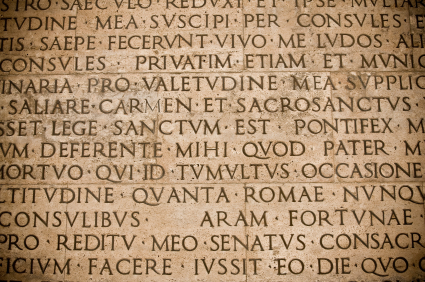For those not familiar with my rants on the topic, when I say "Euro-english" I refer to a curious linguistic phenomenon that results when a European whose first language is not English translates his thoughts into English. It can also come into being when a novice English-speaker makes a too-literal translation (I can show you some embarrassing examples from my younger days). The result is something neither English nor Italian/French/Portugese/Spanish, but some kind of third reality, a linguistic shopwindow mannequin that appears human but cannot speak to us. Today's example is a treat: a Euro-english defense of the study of Latin. The author is trying to tell us that a thorough knowledge of Latin will give us a direct access to our cultural and spiritual past. And then he says this::
A signal of an intellectual heritage too vast, fruitful and rooted to let it be imagined any caesura of its roots.
Plenty of irony here. We are being told that we need more young folks studying Latin. I could not agree more. But how can we learn enough Latin to get inside the heads of Cicero and Aquinas if we don't know enough English and Italian to make a decent translation of a short essay by Celso Morga Iruzubieta?
I remember walking past gelato shops in Rome that advertised "PROPER PRODUCTION" which was their attempt at translating the Italian
produzione propria = homemade. I can tolerate that sort of thing in the window of an ice cream shop, but I expect more from
L'Osservatore Romano.
You can read the whole essay by CMI
here
